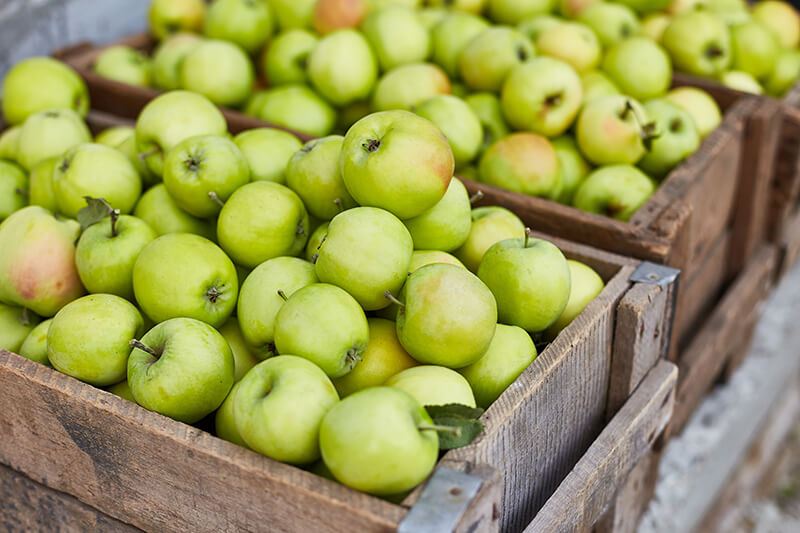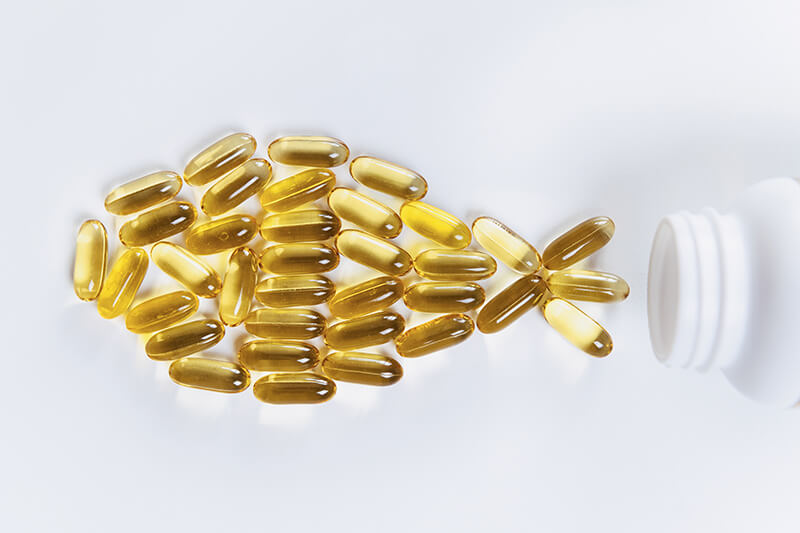Did you know that animals can have many of the same health issues as people? These issues generally stem from the same root problem: inflammation! However, animals can benefit from some of the same natural remedies we do.
Natural and alternative methods for improving animal wellness are gaining popularity in the animal industry. Let’s take a look at a few of the most effective ways to naturally reduce inflammation.
The Root of All Issues
If you search for the phrase “root of all health issues,” inflammation is at the top of the list. Acute inflammation is the body’s normal reaction to any irritant, like an injury or allergy. It is vitally important in helping the body recover. However, when inflammation is prolonged, it can have detrimental effects.
Inflammation is known to contribute to major issues like heart disease, diabetes, arthritis, and even autoimmune diseases. However, there are ways to fight inflammation in animals that are easy on their bodies, and support their overall wellness. Let’s take a look at a few supplements and lifestyle additions, along with their anti-inflammatory effects.
Natural Anti-Inflammatory Supplements
An anti-inflammatory “diet” can go a long way to reducing an animal’s inflammation. Along with anti-inflammatory foods, there are a few natural items that could be supplemented into an animal’s wellness routine. While they may not prevent any disease from occurring, they can assist with an active response to an inflammatory reaction.
Remember to check with a veterinarian or nutritionist when adding natural or holistic supplements. Dosing, efficacy, and administration differ between dogs, cats, horses, and livestock. Certain items could also interfere with any current medications or other supplements that are present in your animal’s diet.
Tumeric
Turmeric is most widely known for its anti-inflammatory properties. Extensive research on humans and animals support these claims. A compound in Turmeric called Curcumin has the ability to reduce inflammatory mechanisms in the cells. This in turn reduces inflammatory response.
Online resources can provide you with guidance on suggested amounts of Turmeric to add to your animal’s diet. You should pay close attention to the dosing as an overdose can cause side effects such as gastrointestinal upset. You may need to get a veterinarian involved to determine the correct dosage for your animal.

Polyphenols
Studies show that foods and supplements containing Polyphenols can help reduce inflammation and improve gut health. Fruits and vegetables are the main natural sources to find polyphenols. Apples, spinach, blueberries, and turmeric are the most common sources
Polyphenols help to relieve oxidative stress in the body. Oxidative stress occurs when the body has imbalanced levels of free radicals and antioxidants. Free radicals can cause the promotion of cell and tissue damage. This reaction causes inflammation and, if uncontrolled, can result in chronic inflammation, which leads to more health issues.

Omega Fatty Acids
Veterinarians stress that the most common nutrient an animal must have is Omega Fatty Acids. When Omega 3’s and Omega 6’s are balanced, it leads to many wonderful benefits including a reduction in inflammation.
Having the right amount of Omega 3 is absolutely vital. Omega 3’s help to produce leukotrienes which are functional in the inflammatory response. Omega 3’s also are essential to cell structure and function. Omega 6’s assist Omega 3’s in the battle against inflammation.
Many nutrition companies develop Omega oil blends which can be added directly to your animal’s food.
Probiotics
It is widely known that probiotics are essential for gut health. However, they are also helpful in reducing inflammation. Some studies show certain bacteria found on probiotics may reduce Lipopolysaccharides (inflammatory response triggers).
When you reduce the chance of an inflammatory response, the immune system does not flare up unnecessarily. A calm immune system generally leads to a healthier body.
CBD
Cannabidiol, or CBD, has become a trendy supplement to add to an animal’s routine. CBD is said to help with anxiety, pain relief, seizures, and inflammation. Research has found that CBD reacts similarly to probiotic bacteria. CBD can help reduce Lipopolysaccharides, which can reduce the inflammatory response.
Devils Claw
Devil’s Claw contains a compound called harpagoside. Studies show that this compound has anti-inflammatory properties. One study involving horses concluded that harpagoside improved cell migration to respond to inflamed tissues. It is widely used in dogs for joint pain and reduces adverse reactions in horses.
Devil’s Claw is a very popular ingredient in many animal supplements.
Glucosamine and Chondroitin Supplements
Glucosamine acts as an anti-inflammatory, and Chondroitin helps to reduce the damage to the cartilage in joints. Animal owners commonly use a combination of both to improve joint health and overall mobility.
Research shows it is effective on both people and animals. When choosing a particular brand to use, you may want to ask your veterinarian for guidance.
Alternative Anti-Inflammatory Methods
An animal in recovery may experience inflammation for quite some time. There are other ways to support them in addition to diet and supplements.

Hydrotherapy
Hydrotherapy normally uses underwater treadmills and pools for physical therapy. This is becoming a commonly available option in many animal wellness centers.
Hydrotherapy allows beneficial movement without adding extra stress to any joints. Dogs and horses frequently utilize water treadmills and spas to help them lose weight and recover from injuries. The gentle movement can also provide a reduction in inflammation.
Acupunture
Traditional Chinese medicine is a common practice in animals and people. Acupuncture is taking the lead as a primary alternative method. It involves inserting tiny needles into specific points to correct the flow of the meridians. Many benefits are linked to acupuncture including a reduction in pain and inflammation.
Weight Management and Exercise
When animals exceed their recommended weight, it can lead to many health problems. Joint pain is a common issue across many species, and weight is a common culprit. When the joints take on extra weight, this causes pain and inflammation.
The increased pain and inflammation affects their movement and overall lifestyle.
Keeping their weight in check with regular exercise can reduce the pressure on their joints.
PEMF
Pulsed Electromagnetic Fields (PEMF) have also been used as a natural way to aid the body in recovery and overall wellness. When animals sustain an injury or are triggered by a foreign entity, the body responds with an inflammatory response. This normally presents as swelling, heat, pain, and stiffness. After the acting veterinarian’s initial intervention, PEMF could help the body naturally recover
Supporting general relaxation[4,5] and helping to increase the range of motion in the body[7,8] are some of the best benefits of PEMF. Using PEMF as a supportive modality along with the current vet-facilitated treatment can help animals recover and return to their day-to-day activities.
Many natural and holistic options have not been intended to diagnose, treat, cure, or prevent any health issues. Also, many supplements and statements have not been evaluated by the Food and Drug Administration (FDA). Always research and converse with your veterinarian or nutritionist to determine what will be best for your animal’s health.

[4,5,7,8] To locate the citations referenced above, visit info.pulsepemf.com/research.












